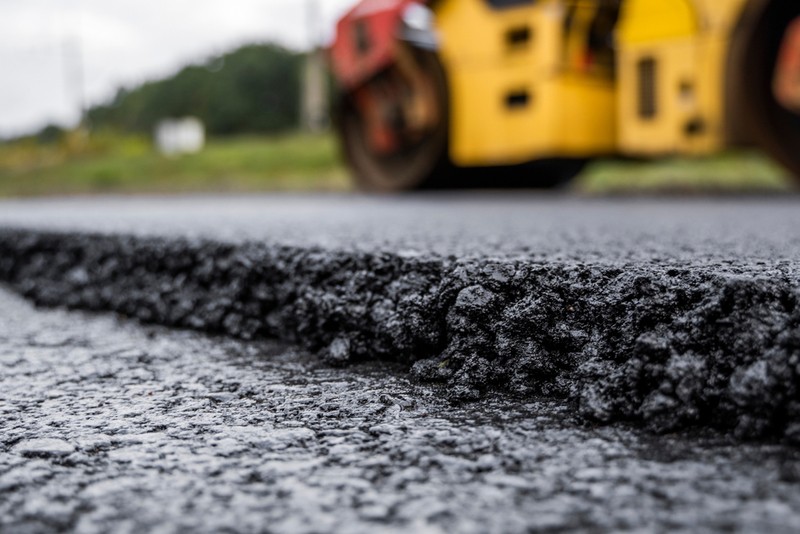Raise Commercial Charm: Hot Mix Asphalt Sealing for Angled Parking Lots
Raise Commercial Charm: Hot Mix Asphalt Sealing for Angled Parking Lots
Blog Article
Hot Mix Asphalt: A Sustainable Option for Pavement
Warm Mix Asphalt (HMA) has actually become a leading sustainable choice for sidewalk options, offering a myriad of ecological advantages and ingenious modern technologies. Its ability to reuse materials and lower energy usage offers an engaging situation for its adoption in roadway construction jobs. Moreover, the long-term efficiency and longevity of HMA make it a preferred choice for framework development. As the need for environmentally friendly construction practices grows, discovering the subtleties of HMA's sustainability can provide valuable understandings into the future of pavement solutions.
Ecological Advantages of Warm Mix Asphalt

In Addition, Warm Mix Asphalt aids to reduce metropolitan warm island results. Its dark shade takes in sunshine, reducing the amount of warm showed back right into the ambience compared to lighter-colored sidewalks. This can reduce ambient temperatures in metropolitan locations, lowering the need for air conditioning and eventually lowering power consumption.
On top of that, Warm Mix Asphalt adds to enhanced stormwater monitoring. Its permeable nature allows water to recharge and penetrate the pavement groundwater supplies, reducing runoff and the risk of flooding. These environmental benefits make Hot Mix Asphalt a sustainable selection for paving roads and freeways.
Energy Effectiveness in HMA Manufacturing
Is power performance an important variable in the production of Hot Mix Asphalt (HMA)? Definitely. Power plays a considerable role in the manufacturing of HMA, influencing both price and ecological sustainability. One key element of power performance in HMA production is making use of warm mix asphalt (WMA) technologies (angled parking). WMA enables the blending and positioning of asphalt at lower temperatures compared to conventional hot mix asphalt, causing lowered energy consumption during manufacturing. This procedure not only reduces fuel usage yet additionally reduces greenhouse gas discharges, making it a much more eco-friendly alternative.
Moreover, developments in plant technologies have resulted in more energy-efficient HMA production procedures. Modern plants are created with attributes like recycled asphalt pavement (RAP) handling abilities, reliable burner systems, and boosted insulation, all adding to power cost savings. By maximizing energy use in HMA production, the sector can decrease its carbon impact while maintaining high-quality sidewalk materials. Energy effectiveness is, therefore, a critical consideration in guaranteeing the sustainability of Hot Mix Asphalt production.
Recyclability of Warm Mix Asphalt
The recyclability of Warm Mix Asphalt (HMA) is an essential aspect of its sustainability and long-lasting article source environmental influence. HMA is one of one of the most recycled materials in the United States, with over 100 million bunches of recovered asphalt sidewalk (RAP) being recycled yearly in brand-new sidewalk building and construction. Reusing HMA offers several environmental advantages, such as lowering the demand for virgin products, decreasing power consumption during production, and decreasing the amount of waste sent to garbage dumps.
The procedure of reusing HMA includes milling the existing pavement, squashing it into smaller pieces, and blending it with new accumulation and asphalt binder to produce a recycled mix. Overall, the recyclability of HMA plays a considerable role in promoting sustainable practices within the pavement industry.

Long-Term Efficiency of HMA
Asphalt sidewalks demonstrate toughness and resilience over a prolonged period, mirroring the long-lasting efficiency of Hot Mix Asphalt (HMA) Additionally, advancements in HMA technology, such as the usage of polymer-modified binders and cozy mix asphalt, have even more improved the durability and durability of HMA pavements. By focusing on high quality building and upkeep practices, HMA proceeds to confirm itself as a cost-efficient and sustainable service for resilient pavement facilities.

HMA: Longevity and Sustainability
Showing both toughness and sustainability, Warm Mix Asphalt (HMA) has actually ended up being a keystone in the construction of long-lasting pop over to this web-site sidewalk frameworks - commercial parking lot paving. HMA's resilience stems from its ability to hold up against hefty tons, extreme climate problems, and high traffic quantities, making it a dependable choice for streets, freeways, and flight terminal runways. The structure of HMA, which generally consists of aggregates, binder, and filler, plays a vital duty in improving its longevity and resistance to deterioration
Moreover, HMA's sustainability hinges on its recyclability and energy-efficient production procedure. The capability to reuse recovered asphalt sidewalk (RAP) in brand-new HMA mixes lowers the demand for virgin products and minimizes the ecological impact of sidewalk building and maintenance. In addition, the power performance of producing HMA lies in its lower mixing temperature levels contrasted to other pavement materials, leading to reduced power intake and greenhouse gas exhausts.
Conclusion
To conclude, warm mix asphalt (HMA) provides a sustainable solution for pavement with its environmentally pleasant characteristics. HMA's recyclability, power efficiency in production, and long-lasting durability make it a green option for road construction. By saving natural sources, lowering waste, and lowering greenhouse gas discharges, HMA plays a vital function in advertising sustainability in facilities advancement. Its capacity to reduce urban warm island impacts further highlights its importance in creating environmentally aware and durable pavement systems.
HMA is one of the most recycled materials in the United States, with over 100 million loads of recovered asphalt pavement (RAP) being recycled every year in brand-new pavement building.The procedure of recycling HMA involves grating the existing sidewalk, squashing it into smaller pieces, and blending it with new aggregate and asphalt binder to develop a recycled mix.Asphalt sidewalks show resilience and durability over an extensive period, showing the long-term performance of Warm Mix Asphalt (HMA) Furthermore, innovations in HMA published here technology, such as the use of polymer-modified binders and warm mix asphalt, have further boosted the resilience and durability of HMA pavements. The capacity to recycle redeemed asphalt sidewalk (RAP) in brand-new HMA mixes lowers the demand for virgin materials and decreases the environmental impact of pavement building and construction and upkeep.
Report this page